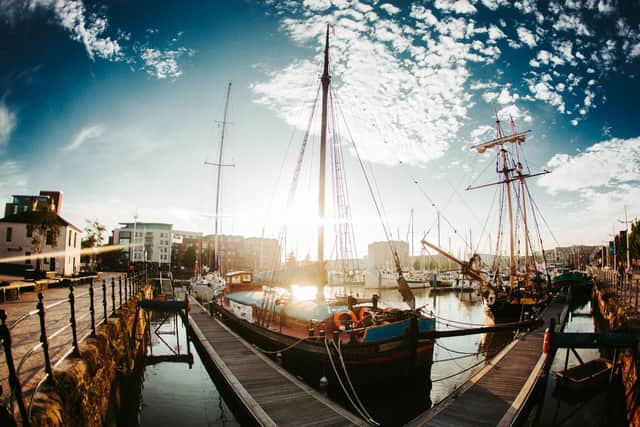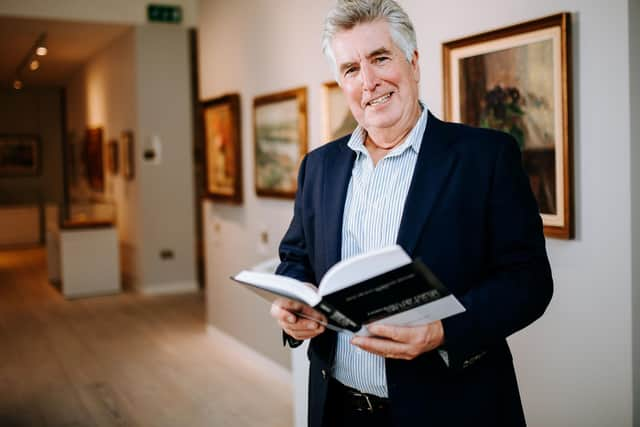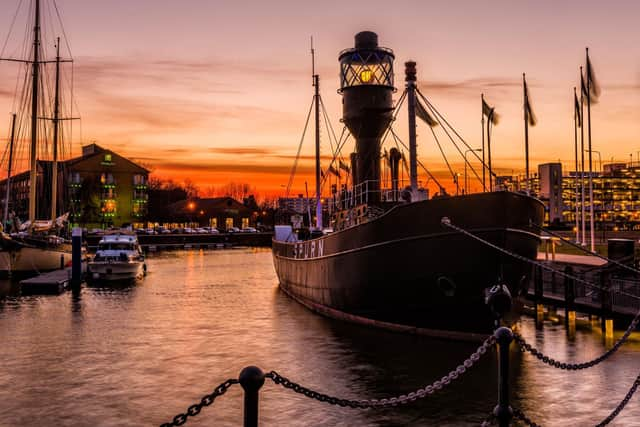Wool, whales and wind turbines – new book reveals transformation of Hull as a port city
Tales of wool, whales and wind turbines have been detailed by Yorkshire historian Dr Robb Robinson, in a new book highlighting the illustrious history of Hull as a thriving port city, with its first dock dating back to the 1770s.
The book entitled: Around These Islands in 12 Ports, follows author Jonathan Winter as he aims to explore the varying identities and cultures found throughout the British Isles, and their relationship to the sea.


Advertisement
Hide AdAdvertisement
Hide AdWith a different local author or historian writing an article from each port, Dr Robinson, Honorary Research Fellow at the Blaydes Maritime Centre at the University of Hull, represented the East Yorkshire port city with his chapter ‘Wool, Whales and Wind Turbines.’
He said: “Hull’s relationship with the sea has defined its existence over the years.
“Hull is often thought of as the end of the line to many - but to me, it is the portal to the rest of the world.
“As a port city, Hull has always been extremely versatile, particularly now in its handling of energy cargo.”


Advertisement
Hide AdAdvertisement
Hide AdIn his chapter, Dr Robinson details how the devastating economic impact of the decline of Hull’s fishing industry was part of a “wider reduction in the use of labour in waterfront activities in the UK, in favour of increased mechanisation in ports.”
In the early 1800s, at the peak of the whaling industry, Hull’s port became a major importer and exporter of whale oil; used to light street lamps at the time.
Since then, it has adapted to handle the energy source of choice at the time, with coal, petrol, natural gas and now wind energy all taking prominence in the region in enormous quantities.
This vast handling of energy cargo has seen the port become recognized as the UK’s Energy Estuary, with a tenth of the UK’s lights being powered by cargo passing through Hull.


Advertisement
Hide AdAdvertisement
Hide AdThe decline of the fishing industry, so instrumental in providing economic value to the region for centuries, could have been viewed as a loss of identity by some.
But, Dr Robinson believes the unique quality of Hull is that “its identity constantly evolves.”
He added this evolution is apparent throughout the region with Hull now the UK’s fourth-busiest passenger port with one million people passing through per year.
Humber Ports handle around 16 per cent of the UK’s entire seaborne trade.
Advertisement
Hide AdAdvertisement
Hide AdWhile the opening of a wind turbine factory by Siemens Gamesa, the largest industrial manufacturing company in Europe, demonstrates the attraction of the region to investors in these industries.
After visiting the city, Jonathan Winter remarked that he felt “a true sense of confidence and pride in everyone we met”, especially after having recently spent a year as the UK City of Culture 2017.
“Everybody had similar aspirations for the future direction of the city, with the green economy brought by offshore technologies the most common,” he said.
_________________
Support The Yorkshire Post and become a subscriber today.
Your subscription will help us to continue to bring quality news to the people of Yorkshire. In return, you'll see fewer ads on site, get free access to our app and receive exclusive members-only offers. Click here to subscribe.